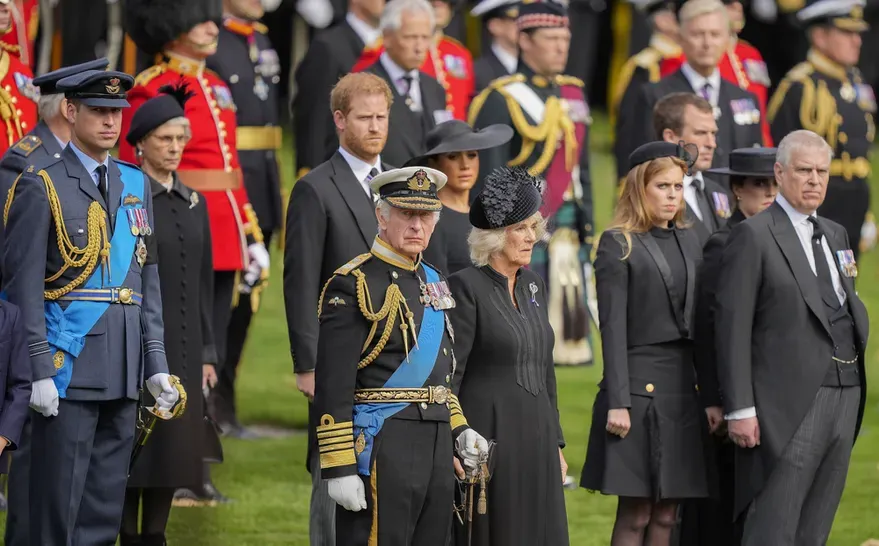The ability of Prince Andrew and the prince harry to temporarily replace King Charles III has been questioned this Wednesday in the House of Lords.
The royals are two of the five councilors of state to the king, who are authorized by law to perform official duties –sign documents, receive ambassadors or attend meetings of the Privy Council– on behalf of the monarch if he is sick or traveling abroad.
LOOK: Prince Harry is devastated by an almost imperceptible detail in his military uniform
The Councilors of State include the spouse of the sovereign and the next four in the line of succession who are over 21 years of age.
They are currently Stretcher, the queen consort; Prince William, the Prince of Wales; Prince Harry, Duke of Sussex; Prince AndrewDuke of York and his daughter, Princess beatrice.
During a session in the House of Lords, Viscount Stansgate asked if there were any plans to modify the Regency Lawwhere these provisions are established, now that the Duke of York has “abandoned public life” and the Duke of Sussex “has left the country”.
He pondered whether it was time for the government to turn to the king to see if a decision could be made. “sensible amendment”
His comments were backed by the Liberal Democrat Lord Addington, who suggested that the first choice of councilor should be someone who “really fulfills the royal duties or at least some of them”.
“Can the government indicate that it will at least consider the person to whom it goes in the first consideration to be someone who actually performs real functions, or at least part of them, at present?” he asked.

In response, Lord True, the Privy Seal and fifth in rank of the great officials of State in the United Kingdom, indicated that he would not comment on “specific circumstances” or discuss any “private conversations” that have taken place with the royal house.
However, he added that the government “will always consider what provisions are necessary to guarantee resistance” within the country’s constitutional arrangements.
“In the past, we have seen that the time of accession has proven to be a useful opportunity to consider existing agreements,” he noted. “Obviously any consideration would have to take place in close consultation with the royal house.”

Some basic constitutional functions of the monarch, however, they cannot be delegated, such as Commonwealth affairs, the creation of peers, or the appointment of a new prime minister.
The dissolution of parliament can only be delegated by express instruction of His Majesty.
Earlier this year, the authority was used to allow Charles III, who was Prince of Wales at the time, led the opening of Parliament because Queen Elizabeth II, who died a few months later, had mobility problems.
Source: Elcomercio
I, Ronald Payne, am a journalist and author who dedicated his life to telling the stories that need to be said. I have over 7 years of experience as a reporter and editor, covering everything from politics to business to crime.

:quality(75)/cloudfront-us-east-1.images.arcpublishing.com/elcomercio/7ODLZGMMCRH75G7FK6S4WKGHXY.webp)

:quality(75)/cloudfront-us-east-1.images.arcpublishing.com/elcomercio/7LT6INO3EZBXXK26WZ7Y625NTY.jpg)
:quality(75)/cloudfront-us-east-1.images.arcpublishing.com/elcomercio/XWSWQTJ6IJHJ5AIFL57WRHE4P4.jpg)

:quality(75)/cloudfront-us-east-1.images.arcpublishing.com/elcomercio/DYR6UVQR6BCWJIGMSI4IFAOG64.jpg)
